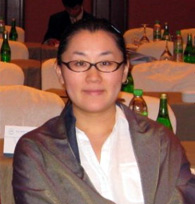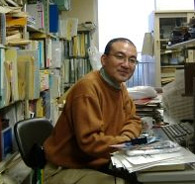I have some suggestions for people who live in foreign countries to help us. First, praying for safety in damaged areas. Second, help [businesses] in Japan and buy Japanese products.
- Itaru Tomita, Chief Editor, G-Men Magazine - Tokyo
Though I have not talked to many PLHIV after the earthquake, privacy and medication compliance will be the biggest challenges among them. I am worried about access to treatment.
- Toma Nemoto, member of Global Youth Coalition on HIV/AIDS - Nagasaki

We usually have some earthquakes in Iwate so I don't usually get scared. But the tremours on 11 March were horrifying. One of the TV programmes told us that they lasted for about five minutes. There are still many aftershocks day and night. My family and I still put clothes and socks on when we go to bed. I've spent my time looking at the survivors' list and listening to a local radio to find out whether my relatives, friends, friends' families and friends' friends are alive. My experience is still ongoing and I'm afraid I can't still describe them well. I don't watch TV now because it's more than what I can handle to see heartbreaking news in towns where I have relatives and friends and also where I used to live (I used to live Miyako.) Towns I know are completely gone in the coastal areas in Iwate. I don't have words to describe my feelings. I feel as if my feelings are also gone.
- Azusa Yamashita, co-founder and editor of GayJapanNews who lives in Iwate, one of the worst hit areas
Rescue teams from many countries are coming and trying to help us. Lots of aid are coming from over world. We deeply appreciate them.
- Fridae member 'TakumaJP'
I would love to help Japan as much as I can. I just got evacuated from my city in Fukushima prefecture and I worry about the people there who I have grown so close with over the last year and a half. I hope I to be able to go back to them once the nuclear problem is over.
- Fridae member 'nardnard'
On Friday, March 11, I was at the hair salon when the earthquake struck , getting my hair highlighted in central Tokyo, so with aluminum foil in my hair and a long white gown on, my hairdresser and I , hand in hand, descended down four flights of stairs quickly to the street. I must have looked like an alien in a sci- fi movie, but none of that mattered when you feel like your life is about to end. Huge buildings were swaying and the ground beneath our feet was shaking for several long minutes. All trains had stopped running so I would be forced to walk home in the dark, not knowing how I could possibly do that, because I can't read Japanese and didn't have any access to any maps, which are mostly in Japanese. I also didn't have any cell phone connection or access to a cab.
When I finally finished my hair appointment, I walked down the stairs and tried to be brave, and in that moment, to my astonishment, was my partner at the foot of the stairs. The timing of this event was unbelievable and if I didn't meet her in that exact moment, I would have walked the streets aimlessly, hoping for the kindness of strangers and almost certain never to have met my partner in a city of 12 million people. She had walked two hours from her office, knowing I was at the hair salon and vulnerable in this situation. I looked her in the eyes, with astonishment, and said "you are my miracle" and hugged her so tightly. That night, we walked arm in arm home, for five hours, along with thousands of other people.
- An American lesbian Fridae member in Tokyo who prefers not to be identified.
I was underground in a building when the earthquake happened. That was so scary and people panicked; I thought I would die. Now my friends are getting out of Japan, that's really freaking me out. Friends are in Kansai, Osaka, Kyoto, even in Okinawa. Foreigners are going back their countries.
- Kengo Mohri, Tokyo
I do not feel 100% safe now in Tokyo. My mom does not want to leave, so I can not leave her alone. It seems that our nuke crisis is getting better, but I think it is time to re-think about nuclear power. [Editor’s note: As of 18 March, Japan’s nuclear safety agency on Friday raised the Fukushima accident level to five from four on the international scale of gravity for atomic accidents, which goes as high as seven.]
- Eisuke Komatsubara, Tokyo

I would like to express my gratitude to you for your sincere attention to the people in our country, Japan, including myself, in relation to the disaster of the earthquake and the consequent tsunami. I myself is alright, and not so involved by the disasters, even if my life is somewhat affected by the shortage of electricity and the consequent partial stopping of train operation, the shortage of daily necessities, and so on.
I am also thankful to many friends here in Fridae for great caring about me, my family, and people in Japan. I have not imagined before that many friends would pay attention to my (and our) conditions, even though I am still new here, just three months since I joined Fridae. I'm mentioning the story above because I would like you to know that there are so many members who have a gentle and kind heart in Fridae.
- Fridae member ' sep001'
Fridae is concerned about how the earthquake and tsunami has affected people, organisations and businesses; and want to hear from local LGBT groups and people as well as people living with HIV. We are also working with our community partners in Japan to organise support for the relief and longer-term reconstruction effort. If you have suggestions about how to help or have news about LGBT organisations in Japan requiring assistance, please send us an email to japanresponse2011@fridae.com.
